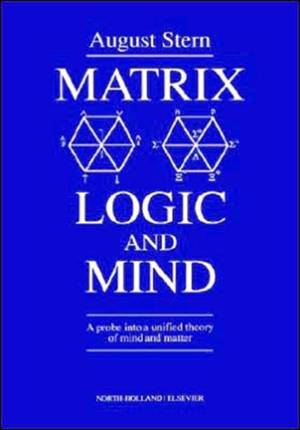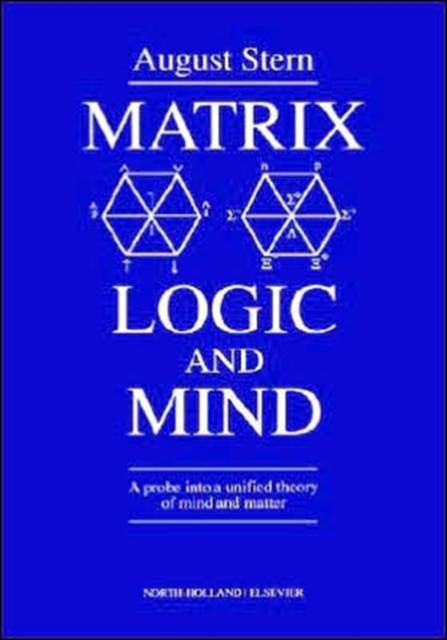
- Retrait gratuit dans votre magasin Club
- 7.000.000 titres dans notre catalogue
- Payer en toute sécurité
- Toujours un magasin près de chez vous
- Retrait gratuit dans votre magasin Club
- 7.000.0000 titres dans notre catalogue
- Payer en toute sécurité
- Toujours un magasin près de chez vous
Matrix Logic and Mind
A Probe Into a Unified Theory of Mind and Matter
A Stern
Livre relié | Anglais
288,45 €
+ 576 points
Description
In this revolutionary work, the author sets the stage for the science ofthe 21st Century, pursuing an unprecedented synthesis of fields previouslyconsidered unrelated. Beginning with simple classical concepts, he endswith a complex multidisciplinary theory requiring a high level ofabstraction. The work progresses across the sciences in severalmultidisciplinary directions: Mathematical logic, fundamental physics, computer science and the theory of intelligence. Extraordinarily enough, the author breaks new ground in all these fields. In the field offundamental physics the author reaches the revolutionary conclusion thatphysics can be viewed and studied as logic in a fundamental sense, ascompared with Einstein's view of physics as space-time geometry. This opensnew, exciting prospects for the study of fundamental interactions. Aformulation of logic in terms of matrix operators and logic vector spacesallows the author to tackle for the first time the intractable problem ofcognition in a scientific manner. In the same way as the findings ofHeisenberg and Dirac in the 1930s provided a conceptual and mathematicalfoundation for quantum physics, matrix operator logic supports an importantbreakthrough in the study of the physics of the mind, which is interpretedas a fractal of quantum mechanics. Introducing a concept of logic quantumnumbers, the author concludes that the problem of logic and theintelligence code in general can be effectively formulated as eigenvalueproblems similar to those of theoretical physics. With this important leapforward in the study of the mechanism of mind, the author concludes thatthe latter cannot be fully understood either within classical or quantumnotions. A higher-order covariant theory is required to accommodate thefundamental effect of high-level intelligence. The landmark resultsobtained by the author will have implications and repercussions for thevery foundations of science as a whole. Moreover, Stern's Matrix Logic issuitable for a broad spectrum of practical applications in contemporarytechnologies.
Spécifications
Parties prenantes
- Auteur(s) :
- Editeur:
Contenu
- Nombre de pages :
- 290
- Langue:
- Anglais
Caractéristiques
- EAN:
- 9780444887986
- Date de parution :
- 12-02-92
- Format:
- Livre relié
- Format numérique:
- Genaaid
- Dimensions :
- 178 mm x 254 mm
- Poids :
- 743 g

Les avis
Nous publions uniquement les avis qui respectent les conditions requises. Consultez nos conditions pour les avis.






